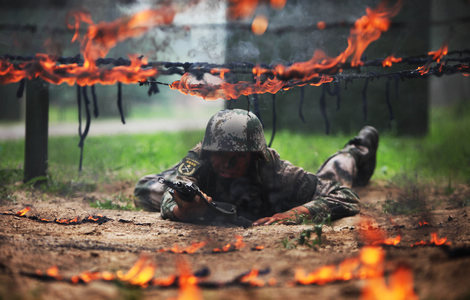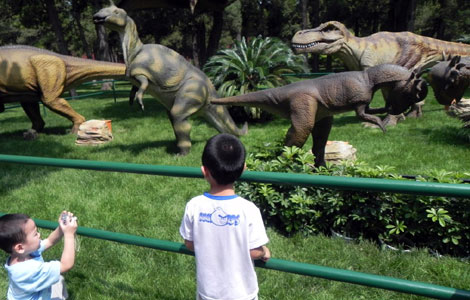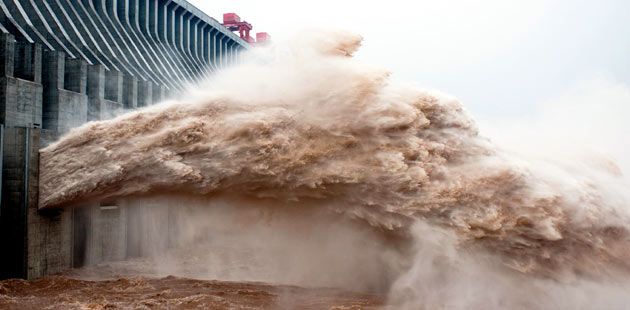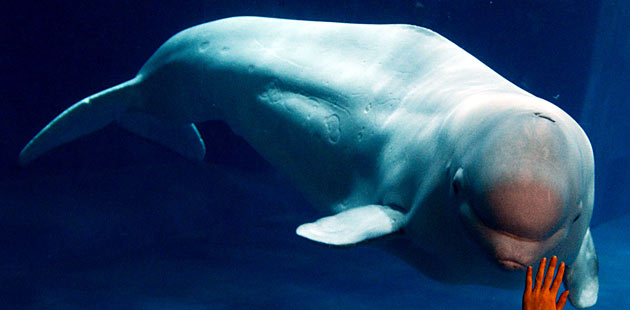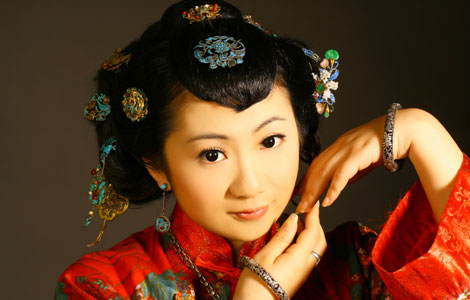Revival of floral water sprays
Updated: 2012-08-26 07:59
By Xu Junqian (China Daily)
|
||||||||
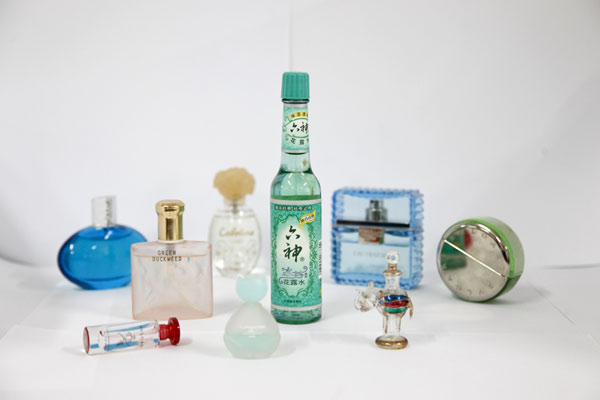 |
|
Kuang Linhua / China Daily |
Need to cool down or chase away irritating bugs in summer? Chinese women have a beautifully scented secret weapon. Xu Junqian looks at the revival of floral water sprays, so beloved of genteel matrons from a generation past.
The days are still hot enough to melt the ice lollies children are clutching in their sticky hands, and cicadas still sing in loud sporadic bursts in the trees casting shade on the windowsill. Indoors, the electric fan buzzes and sends out a gentle breeze upon which wafts the sweet scent of the floral water from the sleepy granny in the rocking chair.
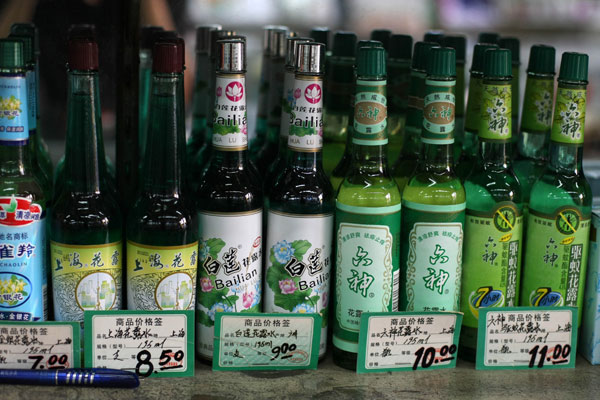 |
|
Liushen Floral Water is not the only one of its kind in the market, although it is the undisputed market leader. Floral water in general is immensely affordable, less than 10 yuan ($1.57) for an almost 200 ml bottle. Zhao Yanxiong / for China Daily |
It is a familiar vignette dredged from the memories of those who lived through the early '80s, an era in which many went through the transition of a simple but rustic lifestyle to the urban and hectic.
And while the simple and rustic can never be recaptured, a wave of nostalgia for the floral water sprays so popular with the fashionable females of that era has caught suppliers by surprise.
Apparently, a recent video, which went viral online, helped spread the nostalgia.
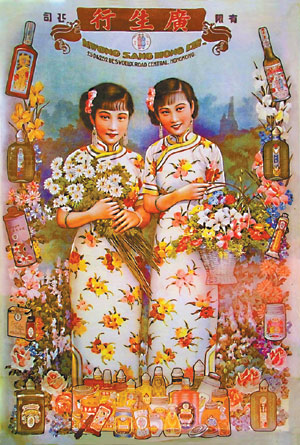 |
| Nostalgia for old times is scented with floral dew. Provided to China Daily |
Named the Past and Present Life of Floral Water, it traced the history of the century-old perfumed infusion in a four-minute animated narration. In the beginning, it started life as an eau de toilette, a luxury item on the female dressing table of the 1900s. It gradually became a summer essential, to spray on liberally to cool off.
Within a few days after it was posted online in July, the little clip had been seen 9.54 million times with more than 240,000 comments left under it, according to statistics from the Jahwa Group, the producer of the video and the manufacturer of Liushen Floral Water.
"The response is overwhelming," says Qin Fenhua, director of the marketing department of the group.
"The target clientele of floral water used to be the 30- to 40-something housewives of China, as they are the decision-makers in buying household products. The more active profile groups online tend to be younger. But I guess there must have been an empathy in the video that cut across young or old, male or female."
As the country got more affluent and more and more imported toiletries flooded the Chinese market, homegrown floral water has been forced to evolve from an exclusive perfume to a more plebeian, if functional, role as summer cooler - and insect repellent.
These days, floral water is as much part of the nursery as talcum powder for prickly heat.
It is used to drive away insects like gnats and mosquitoes in summer, and to relieve the stings and itches if the insects had already gotten to the tender skins of the old and young.
The most famous brand is still Liushen Floral Water, the name in the brand referring to the six herbal ingredients that make it so effective as a mild antibiotic.
The formula is a secret, of course, but we do know it includes honeysuckle, menthol crystal, and musk. The musk used was changed from natural to manmade to conform to environmental concerns.
The good news is, in its new function, floral water is still popular, and has remained so in the last decades.
The young nickname it "Six Gods", a phonetic pun on the meaning of "liushen". Its uses now range from a cooling skin tonic to a cleanser for summer bamboo mats to a deodorant air purifier.
Floral water is also immensely affordable, given the living standards of today. It is less than 10 yuan ($1.57) a bottle for an almost 200 milliliter bottle. In 2010, 270 million bottles were sold, according to the Jahwa Group - which makes it the best-selling scent in the world.
One in five Chinese owns a bottle of floral water, according to Qin, the marketing director.
Liushen Floral Water is not the only one in the market, and there are many similar products.
Jahwa estimates that they have about 65 percent of total market share, and about 80 percent in Shanghai alone.
Yao Jie, a 25-year-old Shanghai native, says floral water to him is a hot-weather tradition like eating watermelon, swimming or being cooled by an electric fan.
"It's what you do every summer," he says.
Young people like Yao have been the major drivers for the popularity of the floral water video clip online.
On Sina Weibo, one of the most popular social networking sites in China, they are reposting and commenting on the clip with such great enthusiasm that one suspects they are being paid. But they are not.
"It's just that floral water was a part of our carefree, seemingly endless childhood summer until it all suddenly ended.
"All your young playmates have grown up to become some boring, black-suited, white-shirted office executive, and the songs of the cicadas have been replaced by the hum of air-conditioners. Even the ice cream you loved so much has been found to be made with adulterated milk," Yao says with some feeling.
"Perhaps floral water is the last visage of that long-gone, naive past."
At Jahwa Group, they like to think all is not over, and that there is a bright future for floral water yet.
Although there is no concrete evidence that the video clip had driven sales up, Qin is confident about his company's product.
"Our sales figures show that the number of bottles being sold is increasing every year. And because of its affordable price, enticing aroma and effective use, it's not likely to be replaced in a hurry."
But at least we now know for certain: Nostalgia sells.
Related Reading:
Floral dew alchemist
He's the man who changed a traditional perfume into a functional household tonic that few Chinese can do without in summer. China Daily reporter talks to the chemist with the scented Midas touch.


